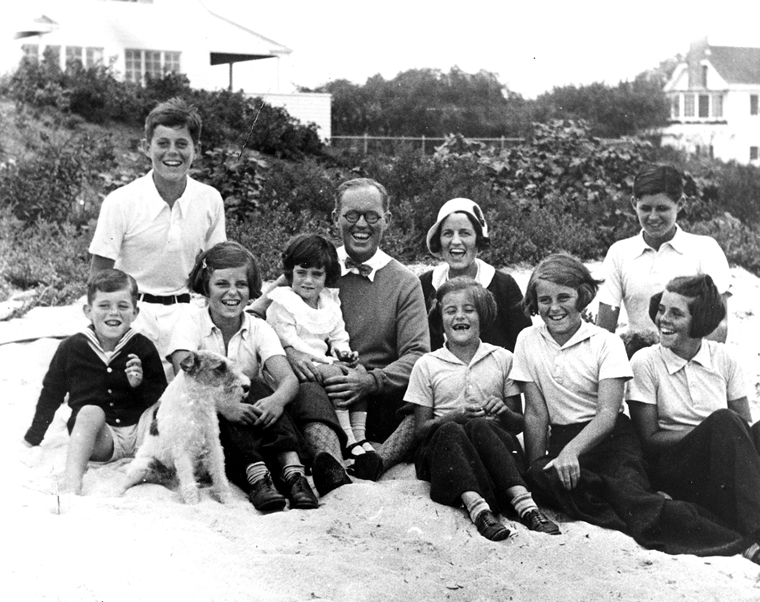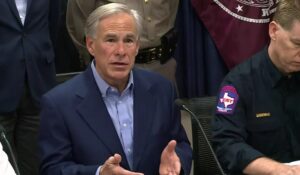It has been sixty years since the assassination of John F. Kennedy, the president. The Israeli-Palestinian conflict might have taken a different turn if he had lived and been elected to a second term. Maybe things could have turned out differently, preventing the rise of Israeli apartheid and the genocide in Gaza.
Despite his brief tenure, Kennedy made substantial contributions to the transformation of US foreign policy. According to the book JFK and the Unspeakable: Why he died and why it still matters, JFK’s policies toward the Soviet Union and the Third World were a direct challenge to the CIA and the military industrial complex. If Kennedy had lived and been re-elected, the Vietnam War, the coup d’état that deposed President Sukarno and killed hundreds of thousands of Indonesians, and the persistence of animosity against Cuba and the Soviet Union would not have transpired.
Less famously, Kennedy’s policies likewise fought against Zionist Israel’s political and military aspirations. Only thirteen years had passed since Israel’s establishment at the time. Both the content and the direction were subject to change. After the Nakba in 1948, the international community was dead set on finding a middle ground for the Palestinian refugees. The Eisenhower administration insisted that Israel vacate the Sinai peninsula after its 1956 invasion of Egypt. They were obedient.
In the early 1960s, notable Jewish figures spoke out against the Israeli government’s bigotry and prejudice. “At the inception of the state, complete equality with the Jewish citizens was promised to the Arab population.” Many influential Israelis realized that their long-term security and well-being depended on finding a just settlement with the indigenous Palestinian population. Martin Buber was one of these Israelis who attacked Ben-Gurion.
The American Jewish community was deeply split, with many members holding anti-Zionist views. Though it opposed nationalism, the American Council for Judaism had significant influence. There was yet time to change Israel’s racist and militaristic nature. Support for Israel among American Jews was also nonexistent. Notable Jewish figures, like Albert Einstein, condemned Menachim Begin upon his arrival in the US in 1948. They characterized Begin, who would go on to become Israel’s prime minister, as a “terrorist” who advocated “an admixture of ultra-nationalism, religious mysticism and racial superiority.” Many American Jews were conflicted about Begin and did not really identify with Israel. Still others backed Israel, but only if the indigenous Palestinians were granted peace.
After Kennedy’s death, there were four major policy shifts that diverged significantly from his administration’s earlier policies.
Kennedy did not harbor any anti-Israel bias.
The Kennedy administration’s foreign policy goals included mending fences with Arab and Israeli governments. Kennedy sought to expand American influence across the Middle East, even with countries who were friendly to the Soviet Union and at war with NATO allies.
When it came to Arab and African nationalism, JFK was a strong advocate. In 1957, while he was a senator, he spoke out against the Eisenhower administration’s backing and weapon shipment to France for their conflict with the Algerian independence movement. He denounced “western imperialism” and urged the United States to back Algerian independence in a 9,000-word speech he gave to the Senate Foreign Relations Committee. A massive and magnificent reception awaited Algerian President Ben Bella upon his arrival at the White House; Bella had been the target of a French assassination plot and was widely regarded as excessively extreme by numerous NATO members.
The icy relationship between Egypt and Syria, then known as the United Arab Republic, and Gamal Abdel Nasser was thawed by Kennedy. They were granted loans by the US for the first time. Kennedy greeted Israeli Prime Minister Ben Gurion with polite letters before he met with Arab presidents. The Arab leaders noticed a change and expressed their gratitude. Some people think there was no difference between Kennedy and Nasser, but nationalist leaders in Algeria and Egypt saw a significant difference.
Kennedy addressed the Zionists of America Convention in 1960 while he was running for president. He spoke highly of Israel while simultaneously calling for unity among all Middle Easterners. He emphasized that the United States should respond swiftly and forcefully to any Middle Eastern country that launches an attack on its neighbor, and he added, “The Middle East needs water, not war; tractors, not tanks; bread, not bombs.”
Aiming to dissuade the Jewish Zionists from the racist, militaristic, and ultra-nationalistic tendencies that had gotten them into this mess, Kennedy told them straight out, “I cannot believe that Israel has any real desire to remain indefinitely a garrison state surrounded by fear and hate.” He wanted to keep the Israeli Arab conflict objective and neutral.
The Zionist Lobby was urged by Kennedy to adhere to the regulations.
Regarding the lobbying of Zionists on behalf of Israel, there is a second distinction in Kennedy’s policies. Organizations that promote or lobby for foreign governments are required to register and account for their funding and actions under the Foreign Agents Registration Act (FARA). The American Zionist Council (AZC) was ordered by the DOJ to register as an international agent during the tenure of Attorney General Robert Kennedy. A group known as AIPAC—the American Israel Public Affairs Council—has its roots in AZC.
In a letter dated November 21, 1962, the Assistant Attorney General informed them that “the receipt of such funds from the American sections of the Jewish Agency for Israel constitutes the (American Zionist) Council an agent of a foreign principal…” We kindly seek the Council’s registration.
The Senate also investigated the growing influence of Israel’s political establishment. In May and August of 1963, the Senate Foreign Relations Committee convened under the leadership of Senator William Fulbright. They pulled the curtain back on tax-deductible contributions to the United Jewish Appeal, which were redirected to the US for lobbying and Israeli public relations, despite the fact that they were intended to be going toward humanitarian aid in Israel.
The AZC legal team was in a holding pattern. An analyst from the Department of Justice looked into the case on August 16, 1963, and came to the conclusion that the American Zionist Council should be registered under the Foreign Agents Registration Act immediately.
“Department expects a response from you within 72 hours.” The DOJ required that AZC register on October 11.
According to a DOJ memorandum from October 17, AZC’s legal team argued that their clients should not be obligated to register as foreign agents. Although they were willing to supply the necessary financial disclosures, they threatened that becoming a foreign agent “would be so publicized by the American Council on Judaism that it would eventually destroy the Zionist movement.” This conversation took place at a time when political zionism was not the dominant ideology among American Jews and was actively opposed by the ACJ and other Jewish groups.
Support for Palestinian Rights by Kennedy
Concerning Palestinian rights, there is a third distinction. Kennedy had more foreign experience than the average US president, although being 44 years old when he became president. He stayed in Palestine for two weeks in 1939. He detailed the predicament and its challenges in an extensive letter addressed to his father. The locals appear to have more compassion for the Arabs, he noted. Not only have certain Jewish leaders displayed an unflatteringly haughty and unyielding attitude, but many also hold the view that the country has been inhabited by Arabs for the better part of a century. There was no way Britain could have relinquished Palestine.
There is a “liberal Jewish element composed of the younger group who fear these reactionaries” and a “strongly Orthodox Jewish group, unwilling to make any compromise” among the Jewish residents, according to Kennedy’s views, which are still relevant today. Finding a middle ground is challenging but necessary, and his approach shows empathy for both Jewish and Arab populations.
When the 1960s began, the United States Department of State was not dogmatically in favor of Israeli policies. Part 11 of UN Resolution 194 states that “refugees wishing to return to their homes and live at peace with their neighbors should be permitted to do so at the earliest practicable date. Compensation should be paid for the property of those choosing not to return and for loss of or damage to property which, under principles of international law or equity, should be made good by the Governments or authorities responsible.” This has become known as the “right of return.” The United States of America supported this resolution.
The disagreement between Washington and Tel Aviv is highlighted in two news articles published in the New York Times on November 21, 1963, the day prior to Kennedy’s killing. A UN report is headlined “Israel Dissents as U.N. Arab Refugees: A Group Backs the United States. The text starts with the following: “A United States resolution calling for continued efforts to resolve the predicament of the Palestinian Arab refugees was approved tonight 83 to 1… Israel cast the single negative vote…” The resolution in question is from 1948, and its most important section, paragraph 11, addresses the future of the Arabs displaced from their homes throughout the Palestine conflict. The territories surrounding Israel have been their home for some time now… “Continue its efforts for the implementation of Paragraph 11” is what the Palestine Conciliation Commission is urged to do in the updated US language.
The headline of the second article in the same issue is “U.S. Israel, you must stand. “Premier Levi Eshkol expressed extreme distaste for the United States’ position in the Palestine refugee debate… Israel’s anger was conveyed to the US Ambassador ‘in the strongest terms’,” according to the Jerusalem Post. Because the Kennedy administration was attempting to find a solution to the Palestinian refugee crisis, including the right of return, the Israeli government was enraged and objected to the American resolution before the UN Political Committee and by American maneuvering over the matter.
In an effort to halt Israel’s nuclear weapons program, Kennedy
Concerning Israel’s nuclear weapons development was the fourth and most contentious issue between Kennedy and the Israeli leadership. The revelation of vital documents and letters pertaining to this matter has been delayed until recent years due to its secrecy.
Kennedy was a vocal supporter of measures to curb the spread of nuclear weapons. He came to terms with the ease with which a disastrous nuclear war may be started, either on purpose or by mistake, after the 1962 Cuba missile crisis. The likelihood of a worldwide disaster would increase if more nations were permitted to acquire nuclear weapons. It was also thought that Israel would becoming more belligerent and less inclined to negotiate a peace deal for Palestinian refugees if they were able to acquire nuclear weapons.
In 1962, Kennedy was hell-bent on finding out whether the intelligence that suggested Israel might be attempting to construct a nuclear weapon at Dimona was accurate and, if it was, to put a halt to it. Israeli Prime Minister David Ben-Gurion and John F. Kennedy became embroiled in a heated diplomatic dispute as a result of this. Letters written by President Kennedy to Prime Minister Ben-Gurion and his successor, Levy Eshkol, have now come to light as evidence of this. “Top Secret” or “Eyes Only” labels cover them all.
The intensity of this showdown can only be fully appreciated by viewing the chronology and certain nuances. All of these messages date back to 1963.
The US State Department directed the US Ambassador to notify the Israeli government in March that, due to “compelling reasons,” the US seeks permission from the Israeli government to send qualified US scientists to Dimona twice a year, in May and November, for full access to the facility’s instruments and parts.
The US Ambassador to Israel was directed by the State Department to “press” for a “affirmative reply” to the previous request for semi-annual inspections of Dimona on April 19.
Benjamin Gurion, prime minister of Israel, responded to John F. Kennedy on April 26. He sidestepped the question of nuclear plant inspections and instead voiced his displeasure with a statement issued by Egypt, Syria, and Iraq. He drew parallels between Hitler and Egypt’s president Nasser.
Responding to Ben Gurion’s worries, John F. Kennedy reaffirmed America’s support for Israel and the Middle East peace process on May 4. To the Israeli prime minister, he expressed his concern over the “successful development of advanced offensive systems” and expressed his lack of concern over an initial Arab assault.
In a Special National Intelligence Estimate released on May 8, it was stated that “Israel intends at least to put itself in a position to be able to produce a limited number of weapons” and that “unless deterred by outside pressure [the Israelis] will attempt to produce a weapon sometime in the next several years.” The analysis went on to say that having the bomb would “encourage them to be bolder in their use of the conventional resources both diplomatic and military in their confrontation with the Arabs.”
An “Eyes Only Ambassador” telegram was issued to the US Ambassador to Israel by the US State Department on May 10th. The Israeli leadership has already agreed to the biannual inspections, therefore the envoy was told to remind them. Additionally, the cable states that the “advanced Israeli program” is the only comparable program, hence any concerns that the Arab world may be developing nuclear weapons “are not valid.”
Since the Kennedy administration was already at odds with Tel Aviv, the Israel lobby put further pressure on the Obama administration to ease the tensions. The State Department’s TOP SECRET memo from May 11, titled “White House Concern with Arab-Israeli Matters,” reveals this. It starts with the following: “As you may be aware, there has been growing evidence that there is growing internal political pressure on the White House to change its attitude toward the Middle East so it better aligns with Israeli goals. This fascinating memorandum demonstrates Israeli influence in US electoral politics and foreign policy. The Israelis intend to use the time leading up to the 1964 presidential election to forge a stronger bond with the US, bolstering national security through measures such as a public security guarantee and fostering a more antagonistic relationship with the UAR [United Arab Republic]. In addition to demonstrating his resolve to end nuclear proliferation, it demonstrates Kennedy’s attempt to limit this effect.
Benjamin Gurion penned yet another lengthy letter to John F. Kennedy on May 12, 1963. To sidestep the US demand once again, Ben Gurion presents an inaccurate history, stating, among other things, that Palestinian refugees departed from Palestine “at the demand of Arab leaders.” Once again, he draws parallels between Hitler and Nasser and warns of the possibility of a second Holocaust. “My people have the right to exist… and this existence is in danger,” he declares to the president.
In his May 19 response to Ben Gurion, Kennedy reaffirmed his commitment to stopping the spread of nuclear weapons. “We are concerned with the disturbing effects on world stability which would accompany the development of a nuclear weapons capability by Israel.” Kennedy emphasizes the “deep commitment to the security of Israel” but warns that getting reliable information about “Israel’s efforts in the nuclear field” could “seriously jeopardize” the commitment and support.
The Dimona nuclear reactor “will be devoted exclusively to peaceful purposes,” Ben Gurion said in a May 27 response to Kennedy. His suggestion for annual visits, beginning at the end of the year, is a response to Kennedy’s desire for biannual visits beginning in June. Since the prior “visit” to Dimona was geographically and temporally limited, this requirement is crucial.
After receiving a scientific assessment of the minimal criteria for a nuclear site inspection, Kennedy wrote to Ben Gurion on June 15. Kennedy then politely gave an ultimatum, after welcoming Ben Gurion’s promises that Dimona will only be used for peaceful purposes. He lays out the plan: “a visit early this summer, another visit in June 1964, thereafter at intervals of six months.” He stresses that the “visit” needs to cover all bases and that “sufficient time be allotted for thorough examination” so that the world can understand Israel’s goals.
Ben Gurion’s resignation as prime minister of Israel was announced on June 16 by the US Embassy in Israel. That it was for “personal reasons” was the rationale given, which was a very surprising development. The contents of the letter that was to be sent from Washington and was received at the embassy the day before were probably known to Ben-Gurion. Delaying action was the effect of his resignation. Until the “cabinet problem is worked out,” US Ambassador Barbour recommended holding off on giving the next prime minister JFK’s close ultimatum.
Kennedy wasted no time. After Levy Eshkol became prime minister of Israel on July 4, he sent a letter to him. Kennedy remarks, “I regret having to add to your burdens to soon after your assumption of office, but… ” He continues by requesting inspections, as requested in the letter to Ben-Gurion, and warns that “support of Israel could be seriously jeopardized” unless this is not done, after congratulating Eshkol on becoming new prime minister.
Kennedy asked Eshkol to respond to his request for visits to Dimona, but Eshkol wrote to him on July 17 saying he needed more time to research the matter. American Ambassador Barbour further by saying that Eshkol expressed his “surprisement” at Kennedy’s claim that the United States’ commitment to Israel was in danger. Israeli Defense Minister Eshkol warned the United States ambassador that “Israel would do what it had to do for its national security and to safeguard its sovereign rights,” a clear indication of Israeli disobedience.
Ignoring the request for a summer inspection, Eshkol reiterated Dimona’s “peaceful purpose” in a letter to Kennedy dated August 19. A date “towards the end of 1963” was his suggested time for the examination.
To determine if the facility could be used for nuclear weapon development, Kennedy set certain conditions, including that the visit must be done “when the reactor’s core is being loaded and before internal radiation hazards have developed.” On August 26, Kennedy wrote to Eshkol, accepting the visit at year’s end but stressing the need of these conditions.
A counselor from the British Embassy met with the State Department on September 16 to develop a Memorandum of Conversation. Everyone was worried, but they all agreed that Dimona would be checked out “before the reactor was turned on.”
Following John F. Kennedy’s assassination on November 22
The United States’ approach to the Middle East under Lyndon Baines Johnson (LBJ) was greatly altered. “You have lost a very great friend,” LBJ informed an Israeli envoy right from the bat. “You have discovered an improved one,” states the Israeli publication Haaretz, while the Washington Report on Middle East Affairs states that “Lyndon Johnson Was First to Align U.S. Policy with Israel’s Policies” and that “Up to Johnson’s presidency, no administration had been as completely pro-Israel and anti-Arab as his.”
The Israelis disregarded JFK’s condition at the vital Dimona inspection on December 26, which led to the reactor going off. The radioactive regions were inaccessible during the subsequent three-week examination. “We were supposed to see this first!” is stated in a handwritten note on the report.We will never know what would have transpired during JFK’s presidency, but his strong beliefs and tireless efforts on the risks of nuclear proliferation meant that it would not have been disregarded like it was under LBJ.
The relationship with Egypt declined throughout LBJ’s presidency. The United States ceased lending and granting direct support to Egypt. The goal of the Israel lobby was to have the United States grow more hostile against President Nasser.
U.S. backing for resolving the Palestinian refugee crisis dwindled and eventually dried up.
The Department of Justice efforts to require the American Zionist Council to register as foreign agents became increasingly weak until they were dropped under LBJ’s new Attorney General Nicholas Katzenbach. What follows is a list of all the transactions:
On December 11, 1963, the AZC attorney wrote to the DOJ saying, “Our client is not prepared to register as an agent of a foreign government.” Instead, he proposed to provide “voluntarily” the required financial information.
More communication between AZC and the DOJ occurred in January and February 1964. AZC expressed concern because the American Council on Judaism publicly said that AZC was acting as “propaganda agents for the state of Israel and that the Jewish Agency was being used as a conduit for funds for the Zionist organization in the United States.”
In summer 1964 Nicholas Katzenbach becomes Attorney General. Negotiations continued. DOJ staff noted that AZC was “stalling” and not providing acceptable information despite the increasingly special and favorable treatment. In spring of 1965 the DOJ accepted that AZC was NOT required to register as foreign agent. Their financial information was kept in a unique expandable folder. In November 1967 the American Israel Public Affairs Committee (AIPAC) applied for a federal tax exemption. The US Treasury Department granted it, backdated to 1953.
Increasingly aggressive and uncompromising Zionist Israel
The successful development of nuclear weapons added to Israel’s aggressive actions and unwillingness to resolve the Palestinian refugee crisis.
With intelligence information provided by Washington, Israel made a surprise attack on Egypt,Syria and Jordan in June 1967. The “Six Day war” was a crucial turning point in middle east history. Israel quickly defeated the unprepared combined armies. In the West, public perception of Israel changed overnight. The mythology of Israeli military (and general) superiority was created. Among the American Jewish population, doubts and concerns about Israel evaporated and support skyrocketed.
Israeli leaders arrogance and deceit is exemplified by the attack on the USS Liberty during the Six Day War. The communications navy vessel was monitoring the air waves in the eastern Mediterranean when it was attacked by Israeli aircraft and boats. Thirty four US sailors were killed and 172 injured. Amazingly, the ship managed to stay afloat. The plan was evidently to sink the ship, blame it on Egypt and consolidate US support and hostility to Egypt and the Soviet Union.
Lyndon Johnson over-ruled the calls for help from the vessel, saying “I will not have my ally embarrassed.”
The deadly incident was covered up for decades.
We do not know for sure what might have happened had JFK not been assassinated. It is possible that Israel would have been stopped from acquiring the bomb. Without that, they may not have had the audacity to launch the 1967 attacks on their neighbors, seizing the Golan, West Bank and Gaza Strip. If the Zionist lobby had been required to register as foreign agents, their influence would have been moderated. Perhaps Israel could have found a reasonable accommodation with Palestinians in one or two states.
Instead, Israel hardened into an apartheid regime committing increasingly outrageous massacres. As Kennedy warned in 1960, Israel has become a “garrison state” surrounded by “hate and fear”. The assassination of John F. Kennedy insured Zionist control of Israel, suffering for Palestinians and permanent instability.





